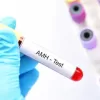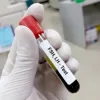
Planning to get pregnant can be overwhelming, more so when you have to start thinking about treatment for fertility. At IVF London, we also recognize that you’re an individual or couple, so learning about various types of IVF treatment, services available with assisted reproductive technology (ART), and ways to maximize success can ensure you’re making an informed decision. Our guide unlocks various types of IVF treatment, types of ART services available to you, the entire process, and our treatment centre’s top tips for fertility success.
What is IVF?
In vitro fertilisation (IVF) is among the cornerstones of assisted reproductive technology. IVF involves fertilisation of an egg with sperm outside a woman’s body in a laboratory, then implanting one or more resulting embryos into a woman’s uterus to induce pregnancy. IVF is typically recommended if other fertility treatments have failed or if a particular medical cause has been identified, such as blocked fallopian tubes, male factor infertility, endometriosis, or if a woman or a man requires a donor egg or donor sperm.
Forms of Assisted Reproductive Technology
Assisted reproductive technology (ART) is a term that encompasses medical treatment by which a clinically induced pregnancy is achieved by handling eggs, sperm or embryos. IVF is most commonly known as ART, but others also exist, which are individually or cumulatively utilized. These are some of the most significant types of assisted reproductive technology:
Standard IVF: Spermatozoa and oocytes are placed together into a culture medium (dish), where fertilization occurs spontaneously within a laboratory.
Intracytoplasmic Sperm Injection (ICSI): A single sperm is directly injected into an egg. It is most effective with male factor infertility.
Natural Cycle IVF and Modified Natural IVF: Minimal or low stimulation with hormonal medications; employs usually one ripe egg that grows and is used to create an embryo. Ideal for women who desires less aggressive treatment or who have low ovarian reserve.
IVF with Eggs or Sperm or Embryo Donation: In situations where a female or a male partner’s eggs or sperm are absent, or where one is single or in cases of same-sex parenthood or where genetic condition precludes the use of self- gametes.
Reciprocal IVF: In lesbian couples, where one partner donates an egg and the recipient partner carries the pregnancy.
Frozen Embryo Transfer (FET): Embryos created are frozen and then transferred in a different cycle. Sometimes, it is favored in certain situations where the patient is at risk of developing OHSS complication, in certain gynecological conditions like uterine polyp, fibroid or endometriosis, cases where genetic testing of the embryos are planned or if there is scheduling conflicts (travel, work, personal reasons)
Preimplantation Genetic Testing (PGT-A / PGT-M / PGT-SR): Genetic analysis of embryos before transfer to detect chromosomal abnormalities or certain known genetic diseases.
Egg Freezing / Fertility Preservation: Freezing one’s eggs for use in the future– i.e. for medical reasons (before chemotherapy for cancer, before surgery involving the ovaries), or for social reasons (delaying parenthood due to career or not having a partner). Best done before 35 years of age.
Assisted Hatching, Time-Lapse Imaging, EmbryoScope, etc (“Add-Ons”): Various laboratory procedures to assist in selecting the most optimal embryos to maximize implantation.
Gestational Surrogacy / Surrogacy: Not necessarily “IVF” by definition, but IVF is utilized where an embryo is placed into a surrogate’s uterus.
They cover some of the types of IVF treatment and ART which are available from major fertility treatment clinics such as our own here in London.
Treatment for Infertility – What to Choose
Before arranging fertility treatment with you, you should take into account:
- Cause of infertility (male factor, female factor, or unexplained)
- Your age (younger patients have higher success rates)
- Ovarian reserve (antral follicle count and AMH)
- Preceding treatment for infertility
- Whether there is need for gamete donation(egg/sperm)
- Whether to genetically test the embryos or not
- Time investment, costs, and affective influence
At IVF London, during your initial consultation with us, we assess all these parameters and tailor a treatment plan. We also explain to you your fertility treatment options — ranging from straightforward treatments (like ovulation induction or IUI) to more complex treatments (like ICSI, programs for donors or PGT).
IVF Process: Step by Step
This is a typical timeline and procedure for an IVF cycle with examples of various types above:
- Initial visit & fertility evaluation:
Medical history, hormone testing, ultrasound assessment, and semen analysis. Decide what type of IVF or ART is optimal.
- Ovarian stimulation (in stimulated IVF)
Hormonal medications (gonadotropins) are used to grow the follicles in order to retrieve multiple eggs. Follow up with blood tests and an ultrasound.
Stimulation is either nil or negligible in Natural Cycle IVF.
- Egg retrieval
Once mature follicles have developed, a trigger injection is given, and ~36 h later, eggs are recovered with sedation.
- Fertilization :
- – Standard IVF: Mixing sperm and oocytes in a culture dish.
- – ICSI: one sperm is introduced into each mature egg.
- – If sperm or an egg is donated, they’re utilized for fertilization.
- Embryo culture & selection
Culture embryos in incubators, sometimes with time-lapse photography or EmbryoScope; assess quality; select best embryo(s).
6: Embryo transfer:
Either frozen or fresh. One or multiple embryos are inserted through a catheter into the uterus.
- Pregnancy tests & follow-up
About 10-14 days following transfer, blood pregnancy test is advised. If positive, plan for an early scan. If negative, review with the clinic and a potential booking for a subsequent cycle.
- Oocyte or embryo Freezing
High-quality additional embryos or oocytes are kept for future cycles.
At all stages, counselling as well as emotional support are given as fertility treatment is physically, mentally, and emotionally draining.
Success Rate & What Affects It
Type of IVF treatment” success rates rely on a variety of things:
- Age of woman (younger = higher success)
- Quality of sperm & eggs (with donated gametes if needed)
- Quality of the embryo and whether genetic tests were performed
- Clinic experience, laboratory instrumentation, and compliance with protocols
- Lifestyle influences (weight, smoking, drinking, overall health)
- Number of embryo(s) to transfer (single or multiple
- Uterine environment & menstrual wellbeing (extent of endometriosis, fibroids, etc.)
At IVF London (and indeed leading clinics for fertility treatment), cutting-edge ART facilities such as PGT, high-end embryo culture, and advanced embryology labs are utilised to maximise success. Accurate reporting of success results is also called for.
Fertility Treatment Centre Considerations
You should also choose a good fertility treatment centre. Investigate these things:
- Board-certified reproductive endocrinologists, embryologists, and support staff
- Accredited clinic with strong safety, regulatory compliance (e.g. by UK bodies)
- High-end laboratory and technology (time-lapse imaging, freezing of embryos, PGT, etc.)Individualised treatment programs; no “one size fits all “
- Economically transparent costing; counselling & emotional support provided
- Rates of success released by age division & treatment type
IVF London is founded on principles: we’re a fertility treatment centre providing a complete complement of ARTs and types of IVF, individualised care, and high success results.
Success Strategies: How to Maximise Your Odds
Here are practical tips when undergoing IVF or exploring fertility treatment options:
Begin early, particularly if a woman’s age is increasing or ovarian reserve is discovered to be low.
Optimise lifestyle and health.
A balanced diet, a healthy weight, stopping smoking, reducing alcohol, and stress and sleep management.
Stay informed about your options.
Prep yourself mentally and financially. IVF cycles have their ups and downs. It’s a good idea to have a realistic idea about how much you will attempt in cycles, and to check into costs beforehand, to help ease stress.
Conclusion:
If you’re thinking about fertility treatment, learning about types of IVF treatment, what assisted reproductive technology has to offer, IVF’s step-by-step process, and success tips can inform and enable decisions. At IVF London, we have an extensive range of fertility treatment services, everything from basic IVF and ICSI to donor programs, genetic analysis, and fertility preservation designed to suit your unique requirements. Join forces with our team to schedule a consultation to find out which kind of IVF treatment is ideal for you. We will jointly craft an individualised strategy tailored for optimal results standing by your side every step of the way.




